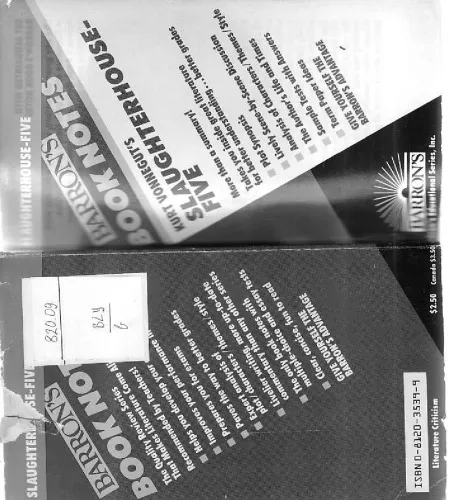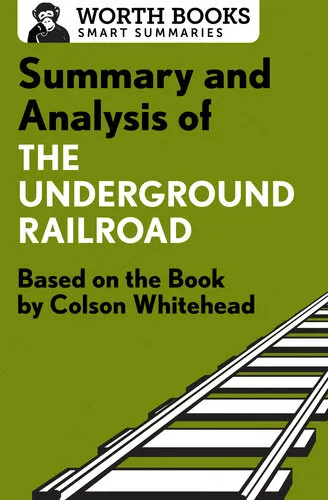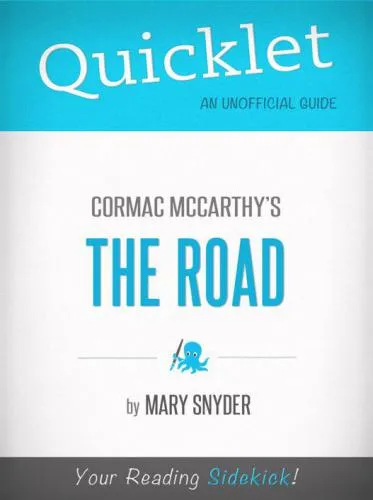Kurt Vonnegut's Slaughterhouse-Five (Barron's Book Notes)
4.0
Reviews from our users

You Can Ask your questions from this book's AI after Login
Each download or ask from book AI costs 2 points. To earn more free points, please visit the Points Guide Page and complete some valuable actions.Related Refrences:
Persian Summary
Kurt Vonnegut's Slaughterhouse-Five: Introduction
Welcome to "Kurt Vonnegut's Slaughterhouse-Five (Barron's Book Notes)," a comprehensive guide designed to help readers understand and appreciate one of the most significant works of 20th-century American literature. Kurt Vonnegut's "Slaughterhouse-Five" is a groundbreaking novel that interweaves themes of war, existentialism, and the human condition. First published in 1969, this satirical anti-war book is highly acclaimed for its unique narrative technique and poignant commentary on the absurdity of human conflict.
With "Kurt Vonnegut's Slaughterhouse-Five (Barron's Book Notes)," we aim to offer readers an insightful analysis of the novel's themes, characters, and structure. This introduction serves as a gateway into the rich and layered universe Vonnegut has crafted, providing readers with a solid foundation to engage deeply with the text.
Detailed Summary of the Book
"Slaughterhouse-Five" follows the life of Billy Pilgrim, a former soldier and survivor of the firebombing of Dresden during World War II. The narrative is non-linear, reflecting Billy's ability to become "unstuck in time," which allows him to experience moments from his past, present, and future at random. This unique narrative structure is essential to understanding the novel's exploration of free will and determinism.
As the story unfolds, readers traverse with Billy through various life events—from his capture by German forces to his time on the alien planet of Tralfamadore. The Tralfamadorian philosophy, which views all moments in time as existing simultaneously, underscores the novel's existential themes and challenges conventional perceptions of time, life, and death.
Key Takeaways
- Vonnegut's innovative narrative style, which challenges linear storytelling, emphasizes the complexities of human experience.
- The novel's anti-war message highlights the senselessness and devastation of conflict, making it a powerful critique of warfare.
- Existential questions about fate, free will, and mortality are woven throughout the narrative, inviting readers to contemplate their own perspectives on these issues.
Famous Quotes from the Book
"So it goes." - This phrase recurs throughout the novel, particularly in response to death, reflecting the Tralfamadorian acceptance of mortality and inevitability.
"Everything was beautiful and nothing hurt." - A poignant epitaph that resonates with both irony and aspirational serenity, encapsulating the novel's bittersweet tone.
"And I asked myself about the present: how wide it was, how deep it was, how much was mine to keep." - A reflection on the fluid and paradoxical nature of time and experience.
Why This Book Matters
"Slaughterhouse-Five" is not merely a novel; it is a significant cultural artifact that confronts the chaos and unpredictability of life. Vonnegut's work encourages readers to question societal norms, grapple with themes of trauma and healing, and ultimately find meaning within absurdity. This book's impact stretches beyond its literary innovations, offering timeless insights into human nature and the futility of war.
Through its unique blend of science fiction and autobiographical elements, "Slaughterhouse-Five" remains relevant decades after its publication. It invites readers from diverse backgrounds to explore profound truths and to acknowledge the enduring power of storytelling in making sense of the world around us.
Free Direct Download
Get Free Access to Download this and other Thousands of Books (Join Now)
For read this book you need PDF Reader Software like Foxit Reader
Accessing books through legal platforms and public libraries not only supports the rights of authors and publishers but also contributes to the sustainability of reading culture. Before downloading, please take a moment to consider these options.
Find this book on other platforms:
WorldCat helps you find books in libraries worldwide.
See ratings, reviews, and discussions on Goodreads.
Find and buy rare or used books on AbeBooks.




